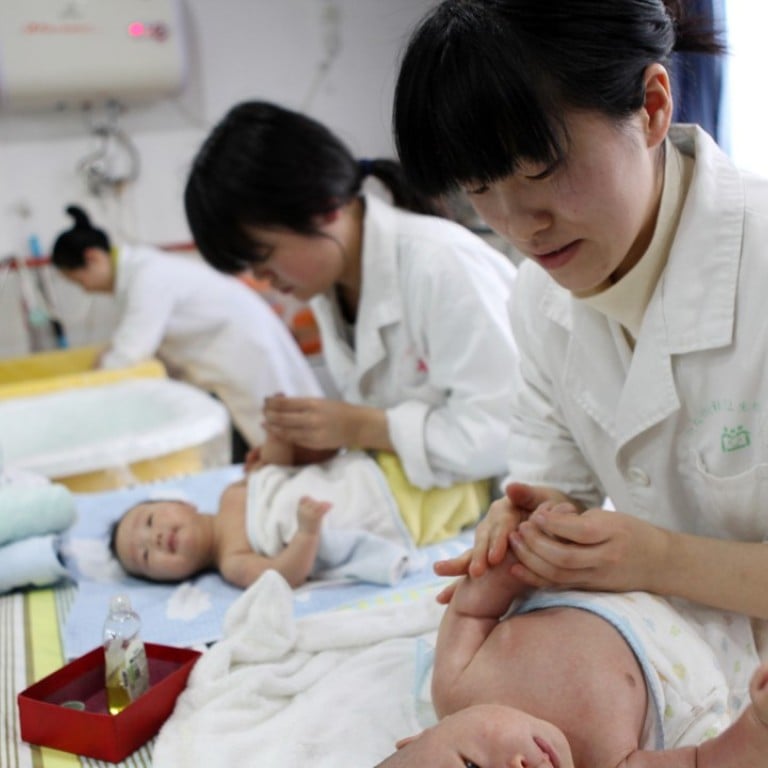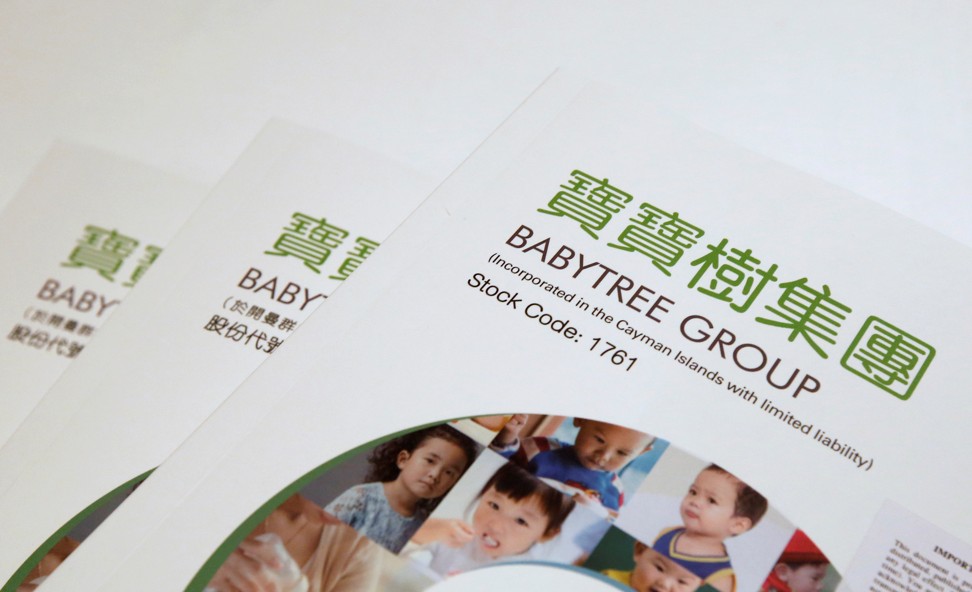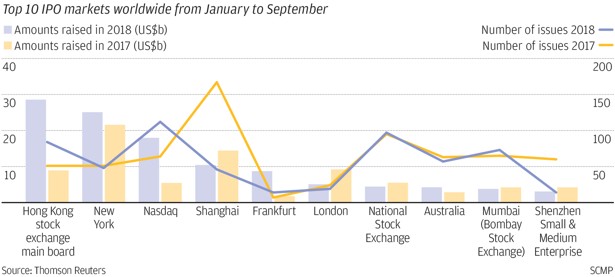
Babytree’s shares rise in Hong Kong debut after cutting IPO size on waning investors’ appetite
- Babytree’s shares began trading at HK$6.91 per share, compared with their IPO price of HK$6.80
- The company last week raised US$281 million, slashing its IPO size by 70 per cent from the original US$1 billion target
Shares of China’s largest parenting website rose when they traded for the first time in Hong Kong, after slashing the amount of capital raised in its initial public offering by up to 70 per cent due to the stock market rout.
Babytree Group, whose investors include Fosun International and this newspaper’s owner Alibaba Group Holding, debuted at HK$6.91, compared with its IPO price of HK$6.80. The stock rose to a high of HK$7.15 during morning trading, before closing the day at HK$6.87, slightly above its IPO price.
Founded in 2006 by former Yahoo and Google executive Allen Wang Huainan, with private equity investor Shao Yibo, Babytree is an e-commerce platform that combines a forum for parenting advice with online shopping for childcare products.

The market for baby care - with 60 million parents - in the world’s second-largest economy is estimated at about US$434 billion, according to Santander UK, and is expected to grow at US$4 billion every year.
Fosun, one of China’s largest private conglomerates, owns 25 per cent of Babytree, while Alibaba Group Holding owns 9.9 per cent through a US$214 million investment in late May.
Club Med’s owner Fosun has a strategy to help everyone live until 121 years old: technology
Babytree last week raised US$281 million in an IPO, offering its stock at the low end of a pricing option after cutting its fundraising from the original US$1 billion target because of waning investors’ interest in a slumping stock market.
An escalating trade war between the United States and China, and concerns over China’s slower economic growth have sapped investors’ confidence. Some technology companies have also performed poorly since their IPOs in Hong Kong, further weighing on investors’ sentiments.

Still, Babytree’s IPO adds to the tally of new listings in Hong Kong, which rose 46 per cent from last year to 150 companies in the first eight months of 2018, putting the city on track to regain the crown in the global race to be the preferred market for raising capital.
Babytree said it would spend the capital it raised on its daily operations, business expansion, research and development, according to its listing prospectus.
The company has projected a full-year profit of 763 million yuan (US$110 million) in 2019, compared with a loss of 2.18 billion yuan in the first half of this year. Earnings will probably increase by 50 per cent in 2020, Babytree said in its prospectus.

